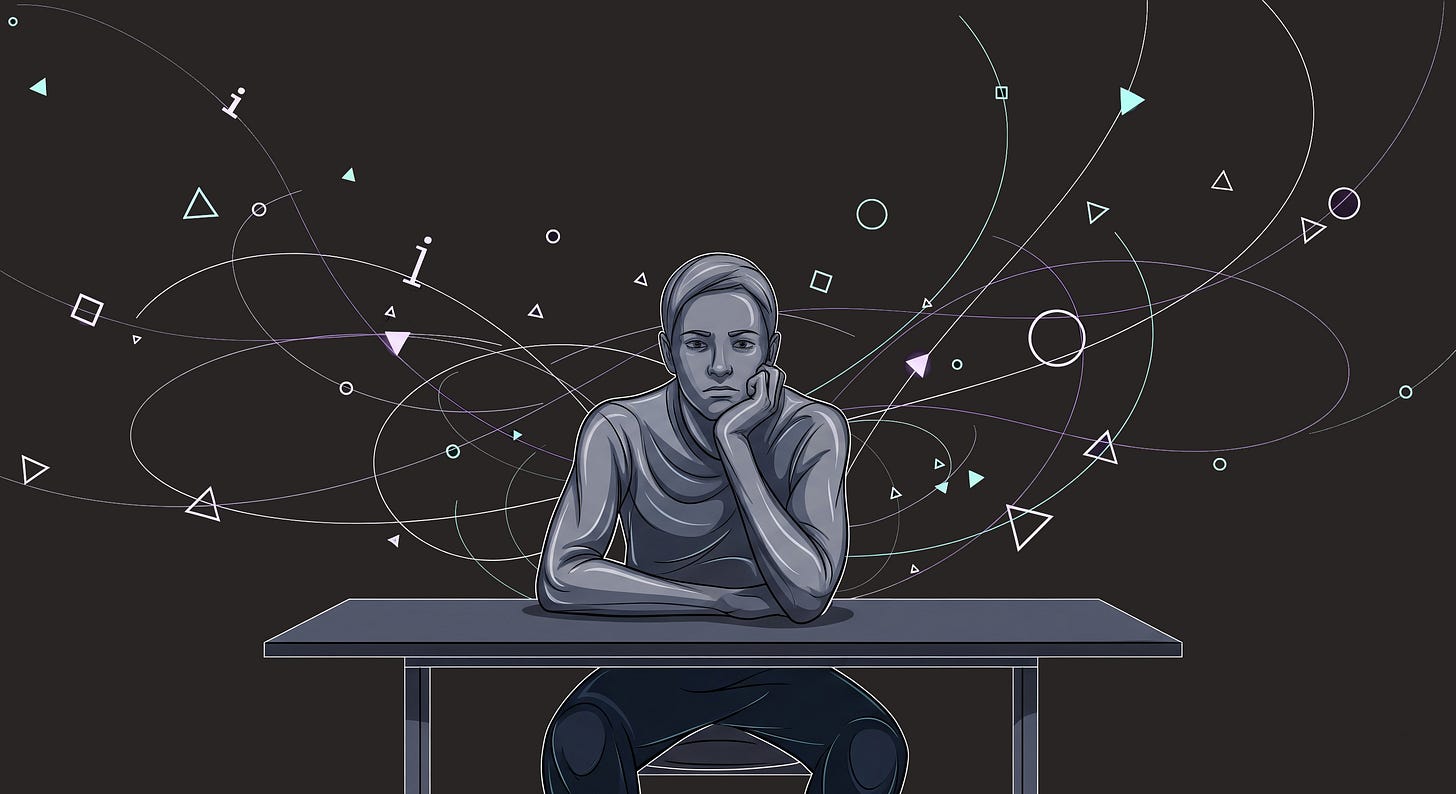The Death Of Expertise Or The Birth Of Meta-Skills?
Exploring the rise of meta-skills in a world where expertise is instantly amplified but often shallow.
Are we smarter with AI? Or just faster at pretending?
Genuinely busy, but falsely productive: an illusion and a paradox we will continue to entertain by systematically resorting to Artificial Intelligence in the workplace.
That’s not all. Another illusion is lurking: quickly informed, but hastily elevated.
Today, with AI, everybody is an expert in the making.
Let me tell you why I think it’s wrong, and allude to a possible right course.
Information Overlord
The everything now era has made us evolve from “Knowledge is power” to “Information is control”. You know, therefore you are.
From a cognitive perspective, this is spinning out of control. According to this article:
Knowledge workers switch between 35 apps more than 1,100 times daily.
They spend 9.5 hours per week just searching for information.
It’s overwhelming. And the vast majority of workers (83%) feel overwhelmed. In other words, a lot of time is spent on “work about work”. Busyness.
This issue has a profound implication: the desire – or imperative – to take shortcuts. The necessity to find the safest answer. The quickest response. The most convincing argument. Your management can’t wait for you to get back to them, because they are in the same cycle. Numbers. Now.
Long story short, we stop using our most powerful muscle – our brain. We are deskilling.
When shortcuts become habits, expertise itself begins to erode.
Information Flattery
Knowledge is a foundation. Skills are variables built on top of it. Information remains transient.
By mistaking information for knowledge, the learning process is derailed, if not bypassed. The neuronal pathways ignited through effort are short circuited. Disabled. Shut off.
Thinking critically? A pipe dream, because genuine, structured viewpoints are dissolved by an artificial response.
Thinking creatively? An illusion, because the dots creativity connects have been pre-traced by AI.
Thinking collaboratively? A mirage, because if every colleague uses the same prompts with the same AI chatbot, it’s quite likely everyone will end up with similar thoughts (although consistency is not yet any LLM’s forte).
It's a skill to connect dots. It’s a skill to process information. It’s a skill to turn information into innovation.
Learners feel satisfied after understanding a new concept or a new theory. They feel even more satisfied after understanding how they were applied in real life. And they may even feel powerful when applying them.
By providing information as a service, GenAI is making us believe prompting is the only skill that matters going forward. It’s eroding some of our very human foundations. It’s called the GenAI crutch and it is problematic – in particular for junior professionals who may believe only shallow knowledge is rewarded. According to a recent Deloitte study, Gen Z workers are twice as likely to use GenAI daily compared to older cohorts.
It does not mean this is the end of expertise. Far from it.
Expertise Metamorphosis
Expertise has long derived its authority from scarcity. As AI democratises access to information at breakneck speeds, the very meaning of expertise is changing.
Call it discernment. Call it clarity. Call it lucidity. AI flattens access to knowledge, but it raises the premium on wisdom. That’s part of the human premium evoked here.
The experts of tomorrow won’t be the ones with the most answers, but the ones with three rare abilities:
Connecting: the ability to connect relevant AI-generated information to reality to maximise business impact.
Filtering: the ability to discard irrelevant AI-generated information for the targeted business objective.
Translating: the ability to convert AI-generated information into a language commonly understood by various business units (that’s the AI transformer I was starting to describe here).
If we think more broadly and more bluntly, tomorrow's workforce needs one skill: learning how to learn and unlearn. I can't resist sharing this link where even Google DeepMind's CEO Demis Hassabis makes the same point.
I do not know if AI is overhyped. I do not know if the progress of frontier models is already stalling. I do not know if AGI will be available in 2026, 2030 or 2050.
I know expertise is not dying. It’s evolving into something rarer, harder, and more human than before.
If history repeats itself, AI is simply going through natural motions. One day, we praise it. The next day, we hate it.
And then, inevitably, we realise Artificial and Human Intelligence don’t replace one another. They sharpen each other.


